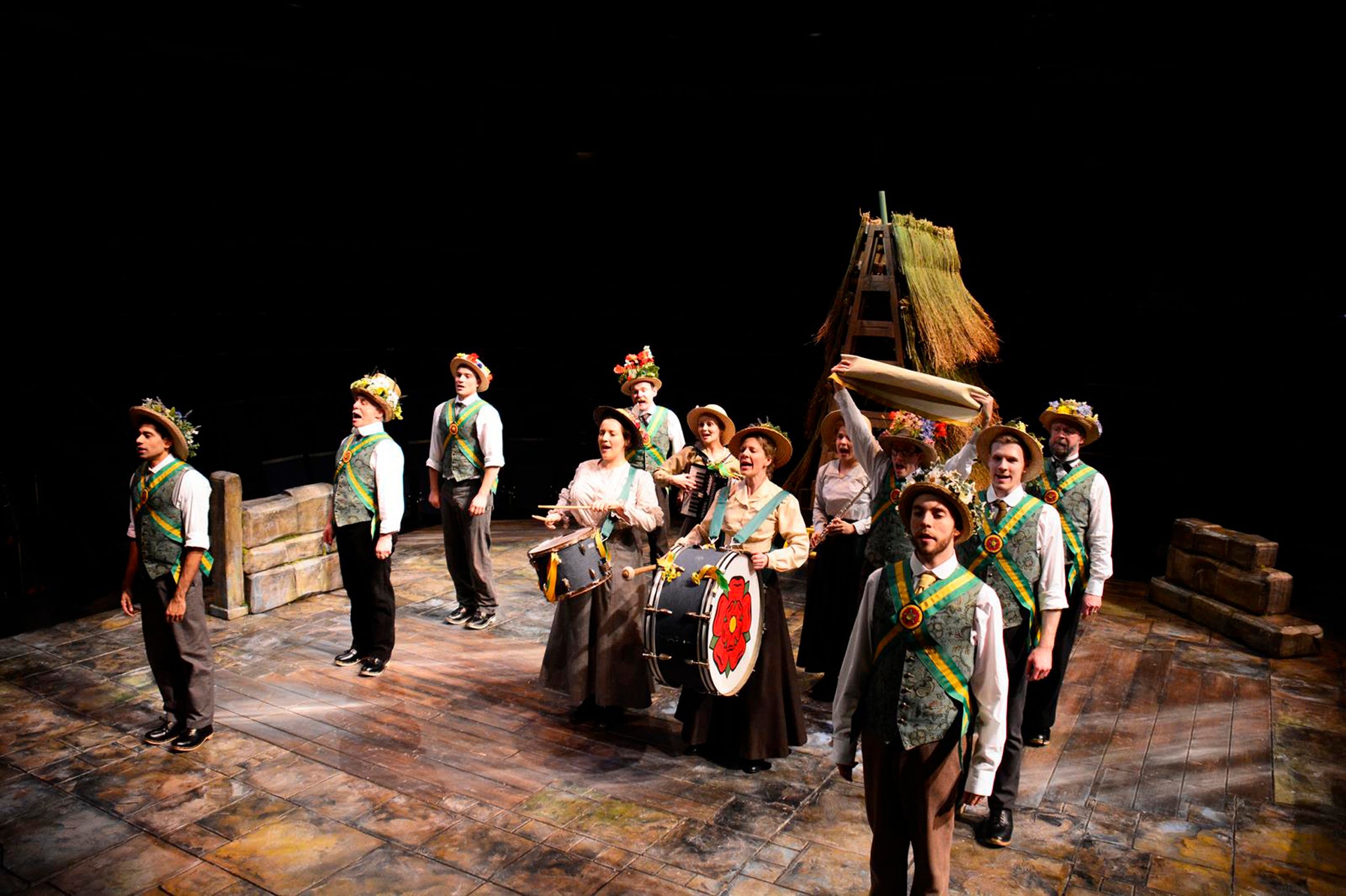An August Bank Holiday Lark, theatre review
New Vic Theatre, Newcastle-under-Lyme

If Michael Gove gets his way, this year’s centenary will teach us to ditch the Blackadder-myths that have misled us into believing the First World War was some kind of misbegotten shambles.
Instead the lions led by donkeys view, propagated – he says - by the left wing educational establishment, will give way to a sober, more patriotic reflection of the necessary sacrifice and just war ethos that drove young men in their hundreds of thousands to perish in the mud, blood and misery of the trenches.
Yet whatever the justification for the events of 1914 the sadness and sense of futility that pervades the memory of conflict is still strong.
Philip Larkin, no left winger he, from whose poem MCMXIV the title of this play is taken, saw it all as a giant, tragic con.
He described the grinning men queuing to enlist in long patient lines as if they were waiting to get into a football or cricket match, the English countryside not caring of the human tragedy unfolding in its midst and above all that heart-wrenching loss of innocence.
These are all themes evocatively addressed by writer Deborah McAndrew for this Northern Broadside production.
The action is set high up in a Pennine cotton town. Despite the dangerous and regimented routines of the mill, the lads and lasses still inhabit the vestiges of a merry England where they can dance round carts and whistle like larks. Of course the great climacteric is all too imminent and the building of tension to the inevitable tragedy is the key to delivering the punch in the guts when it comes.
Despite this it took a little too long for this play to catch hold of the imagination, although when it did, it delivered handsomely.
As McAndrew makes clear, the world was changing even before the horrors of Gallipoli, where our young heroes, so alive, so likeable and so doomed, are headed. The old guard are trying to persuade the youngsters that the annual wake week clogdancing rituals are more important than the tacky thrill of a direct train to Blackpool. They are fighting a losing battle.
The war itself is part of the inevitable drive to modernity. Kitchener’s armies mingled classes and broke down geographical barriers. As Jeremy Paxman has been telling us in his BBC series this is what helped make modern Britain. The guns blew away the Victorian mores of chastity and temperance which even in these far flung hills were beginning to crumble anyway.
The real high points of the show are the set piece clog dances which speak eloquently of the gentle manliness and co-operation of the community. Using the simple things they have at their disposal, a few old instruments, flowers, sticks, a spare piece of cotton, they produce a deeply moving spectacle helping us peer back into the lost world.
New Vic Theatre to 1 March then touring to 14 June
Subscribe to Independent Premium to bookmark this article
Want to bookmark your favourite articles and stories to read or reference later? Start your Independent Premium subscription today.

Join our commenting forum
Join thought-provoking conversations, follow other Independent readers and see their replies